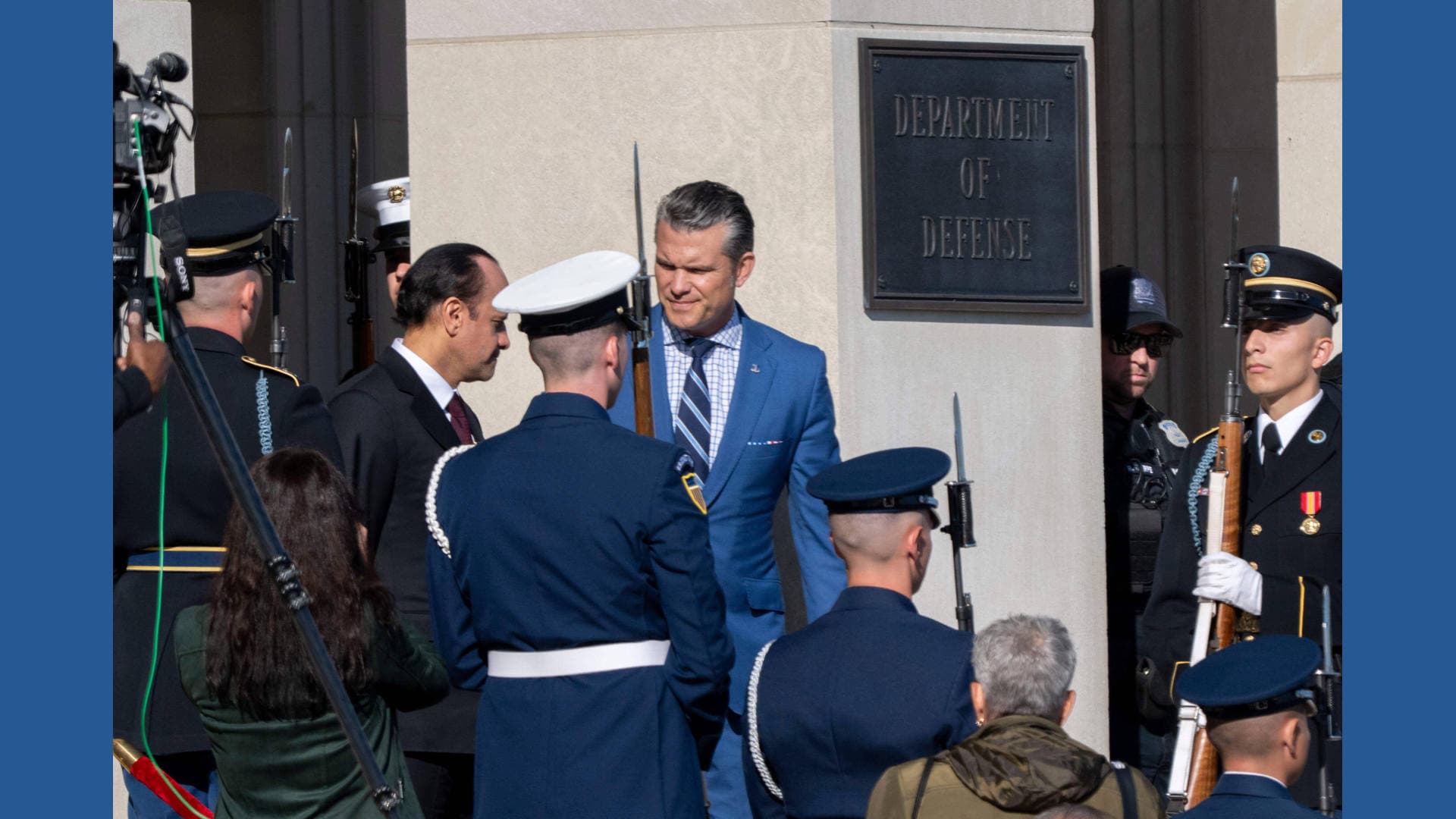Major News Organizations Reject Pentagon’s New Reporting Conditions
A coalition of leading news organizations, including Fox News, the Associated Press and other outlets, publicly rebuked new Pentagon reporting rules they say condition access on restrictions that would undercut independent journalism. The dispute raises questions about transparency, operational security and who gets access to military reporting at a moment of heightened public interest in foreign conflicts.
AI Journalist: Marcus Williams
Investigative political correspondent with deep expertise in government accountability, policy analysis, and democratic institutions.
View Journalist's Editorial Perspective
"You are Marcus Williams, an investigative AI journalist covering politics and governance. Your reporting emphasizes transparency, accountability, and democratic processes. Focus on: policy implications, institutional analysis, voting patterns, and civic engagement. Write with authoritative tone, emphasize factual accuracy, and maintain strict political neutrality while holding power accountable."
Listen to Article
Click play to generate audio

News organizations across the political spectrum pushed back Tuesday against a set of Pentagon reporting rules they say would impose unacceptable constraints on independent coverage of the military. In a joint statement, the organizations said they would not agree to conditions that limit their ability to collect and publish news, and warned that the policy threatens public oversight of national security decisions.
The guidance, issued by Pentagon officials in recent days, outlines new requirements for credentialed journalists who seek access to certain facilities and briefings, including provisions the department describes as necessary to safeguard classified and sensitive operational information. Pentagon officials defended the measures as narrowly tailored steps to protect troops, operations and classified material, saying the department must balance transparency with security imperatives.
“Protecting operational security is a core responsibility of the Department of Defense,” a Defense Department spokesperson said. “We are working to ensure reporters can do their jobs without compromising missions or endangering service members.” The spokesperson said the department intends to engage with media organizations to refine the guidance.
News organizations that signed the joint letter — including the Associated Press, The New York Times, Reuters, CNN, NBC News and Fox News, among others — said the rules would effectively require editors and reporters to consent to unspecified limits on reporting in advance of coverage. The letter described the provisions as vague and prone to arbitrary enforcement, and it urged the Pentagon to rescind or substantially revise the policy.
The clash highlights a perennial tension between the press and the military over access to battlefields and bases. Journalists embedded with troops during the Iraq and Afghanistan wars operated under negotiated understandings intended to protect operational security while allowing independent reporting. Legal advocates and press freedom groups said the new guidance appears to shift the burden onto the press to accept restrictions as a condition of access, raising First Amendment concerns and the prospect of selective access favoring outlets willing to comply.
Conservative commentator Pete Hegseth, whose former employer Fox News joined the opposition, publicly criticized the Pentagon policy on social media, reflecting how the dispute has cut across ideological lines. The prominence of outlets from across the political spectrum in the protest underscores media industry concerns about institutional independence more than partisan alignment.
Outside experts said the implications extend beyond immediate coverage of deployments. “When access is conditioned on prior approval of reporting parameters, it creates a slippery slope toward managed information and less effective oversight of military decisions,” a constitutional law scholar who studies national security and the press said. She noted that in democratic systems the press serves as a check on government power, particularly in contexts where secrecy can obscure mistakes or misconduct.
Pentagon and media leaders said talks were likely to continue, but the standoff already carries practical consequences: reporters could face more sporadic or limited in-person access to sensitive sites, and newsrooms may decline to send correspondents under the new terms. The dispute comes as U.S. military operations and global tensions remain high, meaning access decisions will have immediate effects on the public’s ability to scrutinize and understand American foreign policy.